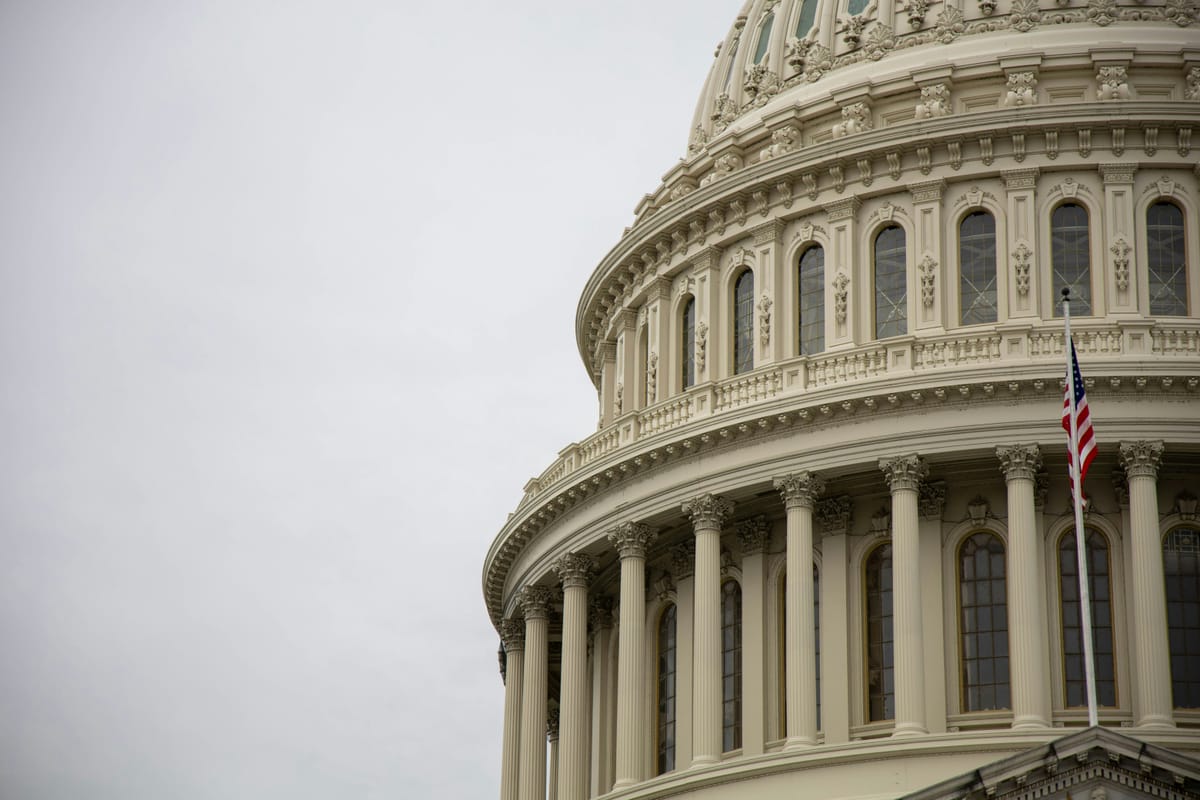Democracy Isn’t Dead—Stop Writing Its Obituary
Democracy isn’t dying of natural causes—it’s being suffocated by collective pessimism, resignation, and the viral normalization of defeat.

As you read this, millions of Americans are nodding along to predictions about the death of democracy, retweeting Doomerisms about election theft, and grimly accepting forecasts of authoritarian rule. The January inauguration hasn't even faded from view, and already the drumbeat has started: Trump won't leave after his second term. The Republicans will rig the next election. Democracy is finished. These predictions spread across social media like wildfire in drought conditions, each share and like another spark in the tinderbox of American democracy.
The threats are real. Let's be crystal clear about that. Voter suppression is real. The rightward shift of the Supreme Court is real. The Republican Party's descent into authoritarianism is real. Trump's comments about voters "never having to vote again" are a genuine attack on democratic principles.
But there's a difference between warning about threats to democracy and treating its collapse as inevitable. Between identifying dangers and surrendering to them. Between raising alarm bells and writing obituaries. And right now, too many defenders of democracy are crossing that line.
When a respected political analyst posts a thread about how "democracy is already dead," they're creating a new reality. Their words shape expectations. Their predictions influence behavior.
When constitutional scholars write detailed analyses of how Trump will "definitely" secure a third term, they're not just warning about possibilities - they're expanding the boundaries of what Americans consider possible. They're moving the Overton window brick by brick, tweet by tweet, fear by fear.
First comes the knowing nods. Then, the resignation. Finally, the shift in behavior: decreased voter registration, reduced political engagement, and weakened resistance to anti-democratic actions. Why fight if the battle's already lost? Why resist if defeat is inevitable?
On social media, we can talk ourselves into a crisis at light speed. One viral thread about election theft can reach millions within hours. An influential prediction about democratic collapse can shape the political conversation for weeks. The velocity of virality means we can normalize the unthinkable faster than ever before.
Look at what happens after every single one of Trump's ludicrous comments. Instead of universal outrage and rejection, we get analysis pieces gaming out how he might achieve a third term. Instead of increased voter registration drives, we get Twitter threads about the death of democracy. Instead of strengthened resistance, we get preemptive surrender. The cruel irony is that the people most guilty of this democratic defeatism are often its most passionate defenders. They're so worried about democracy dying that they're accidentally writing its obituary while it's still alive.
We need people to identify dangers, expose anti-democratic actions, and warn about potential crises. But we need them to do it in a way that mobilizes resistance rather than normalizing defeat.
Democracy isn't just a system of government - it's a collective act of faith. It works because we believe it works. It survives because we believe it will survive. When we stop believing, we stop participating. When we stop participating, democracy starts dying. Not because it was destined to fail but because we talked ourselves into letting it fail.
We need to reframe the conversation entirely. Instead of "democracy is dying," we say, "democracy is under attack - here's how we defend it." Instead of "Trump will definitely get a third term," we say, "Trump is trying to subvert the Constitution - here's how we stop him." Instead of "the next election will be stolen," we say, "they're planning to steal the next election - here's how we prevent it."
The difference might seem small, but it matters. One approach leads to paralysis; the other leads to action. One normalizes defeat; the other normalizes resistance. One treats democracy's death as inevitable; the other treats its survival as non-negotiable.
How we talk about threats to democracy shapes how we respond to them. Every tweet, every analysis, every prediction either strengthens democratic resilience or undermines it. Every discussion either expands or contracts what the citizens of a democracy believe is possible.
We're choosing between two self-fulfilling prophecies: democratic resilience or democratic collapse. We can keep writing democracy's obituary, or we can write its battle plan. We can normalize defeat, or we can normalize resistance.
The threats are real. The dangers are serious. But the outcome isn't written in stone. It depends entirely on what we do next.
Democracy isn't dying of natural causes. But it might die of collective pessimism. And wouldn't that be the dumbest way to lose it all?


